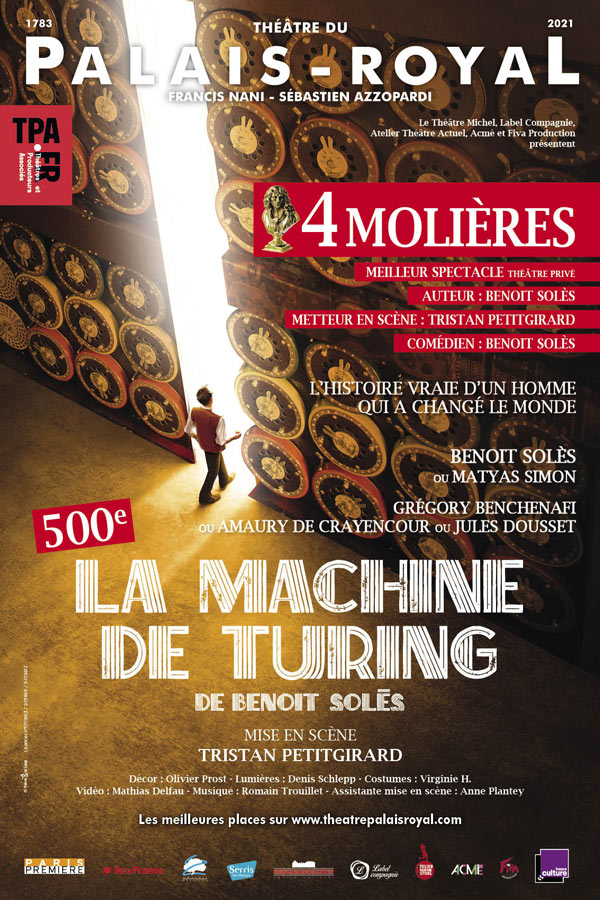The Tezucomi project was born in 2018 in Japan. It was to celebrate the 90th anniversary of the birth of Ozamu Tezuka, the father of Japanese manga. Over the course of 18 volumes, Japanese and foreign authors revisit the master's flagship and lesser-known works. In this way, they build an anthology of a unique genre, a gateway to Tezuka's rich universe and a bold, modernized reinterpretation of a timeless work. The series quickly found success in the archipelago and beyond. In France, the publisher Delcourt began publication in 2021 choosing to group all the works in 3 beautiful volumes of 400 pages entitled simply Tezucomi. The 1stvolume we liked enormously (see here the review). The second, eagerly awaited, literally conquered us.
Tezucomi volume 2: creative audacity
This second opus pushes a little further the freedom of tone granted to authors whether Japanese (Bokutengo) or European (Mig, Valérie Mangin, Brice Cossu). On the one hand, this translates into innovations in terms of storytelling. You will find a story almost without dialogues and carried by a drawing / a fantastic staging (Le Lapin de la Lune). This story is one of the most beautiful stories in the collection (and the competition is tough). We will also appreciate a fantastic mise en abyme in the New Nanairo Inko where the theater meets the work of Tezuka. On the other hand, several narratives choose the inversion map. Either by changing the role of the main characters or by changing the narrator's point of view. We let readers immerse themselves in The Cursed and enjoy the vision of what could be a sequel to Metropolis (both Tezuka's story and Rintaro's sublime film). They will then be able to rediscover The New Sapphire Prince where the hero has changed sex. They will still have in The Song of Mina the opportunity to discover a world inspired by Blade Runner where the place of men and artificial has been exchanged. 
An anthology for all tastes
The very high quality of Tezucomi consists in the eclecticism of the compiled stories. Readers of all ages, genders, backgrounds will find their account in the choice of works reinterpreted here: children's tales, thrillers, mythological legends, romance, Science Fiction, humor, even parody. This highlights the breadth of Tezuka's inspiration and the wide variety of themes he tackled. The reader is thus offered two types of stories. On the one hand, he will taste complete stories (The Cursed, the Rabbit of the Moon, Catalante) remarkably written, illustrated. These stories are jewels of construction succeeding in a small number of pages to offer a brilliant end to their story. On the other hand, he will be able to discover the first chapters of works that will remain unfinished: The Song of Mina, The Metamorphics in the City, The New Sapphire Prince, Songoku … So many exciting stories opening on very complex universes that we would like (and this is one of the many qualities of this collection) read more! 
A graphic ambition coupled with a strong tribute to the 7th art
As for the first opus, this second part is based on a very high visual quality. In styles ranging from shonen, to children's stories, seinen or even black thrillers, each story is beautiful. We have previously praised the work on The Rabbit of the Moon. But these praises accompany every story in the collection: whether it's the very shonen dynamism of Songoku, the shojo sweetness of Nanairo Inko or the urban thriller of The Song of Mina or The Cursed. This collection develops visually and scripted a particular dimension: the links between Tezuka's work and the 7th art. For example, Matthieu Bablet continued to explore the relationship between Tezuka and Fritz Lang by mixing the universe of Metropolis with that of M the Cursed for a striking result. We also find nods to Blade Runner but also to the universes of Blade and Underworld in the revival of Vampires. Animation is not to be outdone since fans of the genre will find references to Lady Oscar, Ghost in the Shell or Pompoko. This second volume of the Tezucomi anthology deserves all possible compliments. Beautiful, intelligent, daring, each story brilliantly pays tribute to the Japanese mangaka. All that remains is to wait for the release of the last volume to fully enjoy this really exciting collection.





































